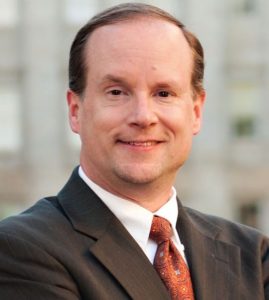 By JOHN HOOD
By JOHN HOOD
RALEIGH — You may recall that back in early April, a panel of health analysts presented Gov. Roy Cooper with two forecasts: 250,000 COVID infections by June 1, if Cooper’s initial lockdown orders were kept in place, or 750,000 infections by June 1 if the orders were lifted.
As of July 19, however, there were just 99,778 confirmed cases of COVID-19 in North Carolina. Does that mean the governor’s advisors were wildly inaccurate in their modeling? Should we ignore what they’re saying now?
No and no.
As longtime readers know, I’ve criticized the governor’s regulatory response to the coronavirus. I think it’s been overly rigid, unfair, and, in some respects an exercise of power Cooper does not legally possess. I think his unwillingness to allow local districts to reopen schools for full-time instruction was particularly indefensible, ignoring scientific evidence and sacrificing the interests of students and their families to appease special-interest groups.
However, neither the Cooper administration nor its advisors deserve the bum rap that they vastly overestimated the number of infections North Carolina would experience. Indeed, it could be that their high-end estimate of 750,000 infections was an underestimate.
Cases and infections are two different things. The former is a subset of the latter. The original projection wasn’t that 250,000 to 750,000 North Carolinians would test positive and thus become confirmed cases. It was that many hundreds of thousands would become infected with the virus — and that the vast majority would either show no symptoms or experience such mild symptoms that they would never feel sick and get tested.
In the initial forecast, the scholars assumed that for every confirmed COVID case, there would be 24 additional people infected with the virus but not tested and thus never confirmed as cases. In a later forecast, they estimated total infections by multiplying by 10 rather than 25.
These were hardly unreasonable assumptions to make. They reflect well-known patterns for modeling diseases. Moreover, the parameters proved to be consistent with two subsequent developments: 1) huge increases in confirmed cases as North Carolina hugely expanded its testing capacity and 2) results from a serology study being conducted by the Wake Forest Baptist Health system, with partial funding from the legislature.
On testing for the disease itself, confirmed cases were averaging a few hundred a day in April. That shot up in May and June, into the thousands per day, but interestingly the share of state-tracked tests producing a positive result stayed in a narrow range of 8% to 10%. In other words, the more we tested, the more cases we found. That’s consistent with the existence of a background set of many unknown infections awaiting discovery.
As for testing blood for COVID-19 antibodies, the Wake Forest Baptist Health study is tracking a sample of just under 20,000 North Carolinians, disproportionately but not entirely in the Triad area. As of early July, about 14% have tested positive for antibodies, suggesting they were likely infected at some point in the past. If that were true for the population as a whole, nearly 1.5 million North Carolinians have already been infected.
We can’t say that with confidence, however, because the Wake Forest Baptist study is not a truly random sample. It could be that those volunteering for the study are more likely to be symptomatic, or differ from the general population in some other important ways.
Still, it is reasonable to conclude that current case count significantly understates the true number of infections. That means the virus is far less deadly than originally feared. But it also means that the virus is ubiquitous and easy to spread. Indeed, multiplying an infection fatality rate of even 0.1% by a large population will still yield many deaths.
So, while case-count reports can be misleading, we should be closely watching hospitalizations and deaths. We should be taking COVID-19 seriously. We should mask up and take other precautions. And we should avoid making spurious allegations even as we debate these critically important matters.
John Hood (@JohnHoodNC) is chairman of the John Locke Foundation and appears on “NC SPIN,” broadcast statewide Fridays at 7:30 p.m. and Sundays at 12:30 p.m. on UNC-TV.










